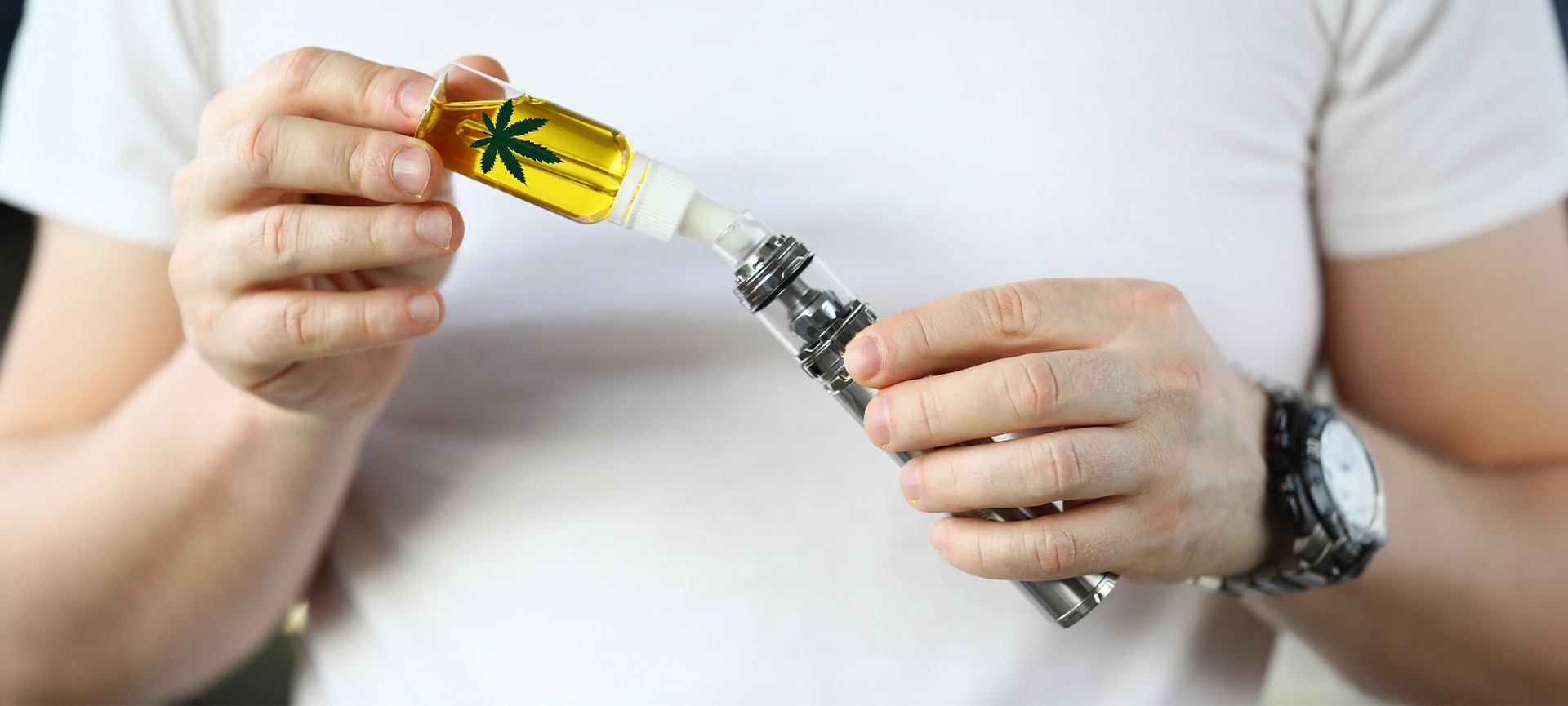Vaping has become increasingly popular over the last decade, particularly among those who consume cannabis. The rise of vape pens and e-cigarettes has made consuming tetrahydrocannabinol (THC)—the psychoactive compound in cannabis—more accessible and discreet. However, while vaping THC is often perceived as a safer alternative to smoking, it comes with its own set of risks, particularly regarding addiction.
This blog will explore the potential for addiction to vaping THC, the health risks involved, and the factors that contribute to the growing concern around this method of consumption.
The Appeal of Vaping THC Oil
Vaping THC has gained popularity for several reasons. Vape pens are portable, easy to use, and produce less odour than smoking, making them more convenient and discreet.
Many users believe that vaping is a healthier option than smoking, as it does not involve combustion, which can produce harmful toxins. This perception of safety, combined with the convenience of vape pens, has led to a significant increase in the number of people—especially younger individuals—who choose to vape THC.
Vaping allows users to consume higher concentrations of THC than they might typically get from smoking cannabis. THC concentrates used in vape cartridges can contain up to 90% THC, compared to the 10-20% typically found in cannabis flowers. This high potency can lead to stronger and more immediate effects, which can be appealing to users but also significantly increase the risk of addiction.
How Vaping THC Can Lead to Addiction
The potential for addiction to vaping THC is closely linked to the drug’s potency and the method of consumption. Vaping delivers THC to the bloodstream quickly, producing almost immediate effects. This rapid onset of effects can reinforce the behaviour, leading to repeated use and the development of tolerance.
Tolerance and Dependence
As users continue to vape THC, they may develop a tolerance, meaning they need to use more of the substance to achieve the same effects. This increased use can quickly lead to dependence, where the body becomes accustomed to the presence of THC and begins to rely on it to function normally.
Once dependence sets in, stopping or reducing THC intake can lead to withdrawal symptoms, such as irritability, anxiety, insomnia, and cravings, which further reinforces the cycle of use.
The Role of Potency
The high potency of THC concentrates in vape cartridges also plays a significant role in addiction. Higher doses of THC can increase the risk of developing addiction by overstimulating the brain’s reward system, leading to changes in brain chemistry that make it harder to stop using the drug. The more potent the THC, the more intense these changes can be, making vaping a particularly risky method of consumption.
Behavioural Patterns
Vaping is also associated with behavioural patterns that can contribute to addiction. Because vape pens are easy to carry and use discreetly, users may find themselves vaping more frequently throughout the day. This increased frequency of use can lead to a habit that is difficult to break, particularly when combined with the potent effects of THC concentrates.
Related Article: How to Quit Smoking

Health Risks Associated with Vaping THC
Vaping THC poses several health risks that are important to understand. While vaping is often marketed as a safer alternative to smoking, it is not without its dangers.
Lung Health
One of the most significant health risks associated with vaping THC is its potential impact on lung health. The long-term effects of inhaling vaporized substances are still not fully understood, but there have been reports of lung injuries linked to vaping, particularly with the use of illicit or unregulated vape cartridges. These injuries, known as e-cigarette or vaping product use-associated lung injury, can cause severe respiratory problems and have been linked to deaths in some cases.
Mental Health
Vaping high-potency THC can also have adverse effects on mental health. THC is known to affect the brain’s neurotransmitters, which can influence mood, perception, and behaviour. Regular use of high-potency THC has been linked to an increased risk of mental health issues, including anxiety, depression, and psychosis.
For individuals predisposed to mental health disorders, vaping THC can exacerbate these conditions and lead to long-term psychological problems.
Impaired Cognitive Function
THC affects the brain’s ability to process information, impacting memory, attention, and decision-making skills. These cognitive impairments can be particularly concerning for younger users, as the adolescent brain is still developing and is more susceptible to the negative effects of THC.
Regular use of high-potency THC through vaping can lead to lasting cognitive deficits that may impact educational and occupational outcomes.
Related Article: What Role Does Cognitive Behavioral Therapy Play in Treating Addiction?
Factors Contributing to the Risk of Addiction
Several factors contribute to the risk of addiction when vaping THC, including age, frequency of use, and individual susceptibility.
Age
Younger individuals, particularly teenagers and young adults, are at higher risk of developing an addiction to vaping THC. The adolescent brain is still developing, making it more vulnerable to the effects of THC. Early initiation of THC use can lead to a higher likelihood of addiction later in life, as the brain’s reward system becomes conditioned to seek out the drug.
Frequency of Use
The more frequently someone vapes THC, the higher the risk of developing an addiction. Regular use, especially when combined with the high potency of THC concentrates, can quickly lead to tolerance and dependence.
Genetics and Mental Health
Some individuals may be more susceptible to addiction due to genetic factors or underlying mental health conditions. Those with a family history of substance abuse or mental health disorders may be at greater risk of developing an addiction to vaping THC.
Related Article: How to Deal with Teenage Drug Addiction
Preventing and Addressing THC Vaping Addiction
Given the risks associated with vaping THC, it is crucial to take steps to prevent addiction and address it when it occurs.
Education
Educating individuals, particularly young people, about the risks of vaping THC is essential in preventing addiction. This education should include information about the potential for addiction, the health risks associated with vaping, and the importance of using cannabis responsibly.
Regulation
Ensuring that vape products are regulated and safe for consumption is another important step in reducing the risks associated with vaping THC. Consumers should be encouraged to purchase vape products from reputable sources and avoid unregulated or illicit cartridges, which may contain harmful additives.
Seeking Help
For those struggling with an addiction to vaping THC, seeking professional help is crucial. Addiction treatment programs, such as those offered by Addiction Rehab Toronto, can provide the support and resources needed to overcome addiction and build a healthier, substance-free life.
Related Article: The Importance of Clinical Supervision for Drug Addiction Recovery

The Last Puff: Embracing a Healthier Life
Vaping THC carries significant risks, particularly in terms of addiction and overall health. The high potency of THC concentrates, combined with the ease and frequency of use associated with vaping, makes this method of consumption particularly dangerous. Understanding these risks and taking proactive steps to prevent and address addiction is essential for anyone who uses or is considering using THC in this form.
At Addiction Rehab Toronto, we are committed to helping individuals handle these challenges and achieve lasting recovery. If you or someone you know is struggling with an addiction to vaping THC or other cannabis products, we encourage you to reach out for support and begin the journey to a healthier, more fulfilling life.







